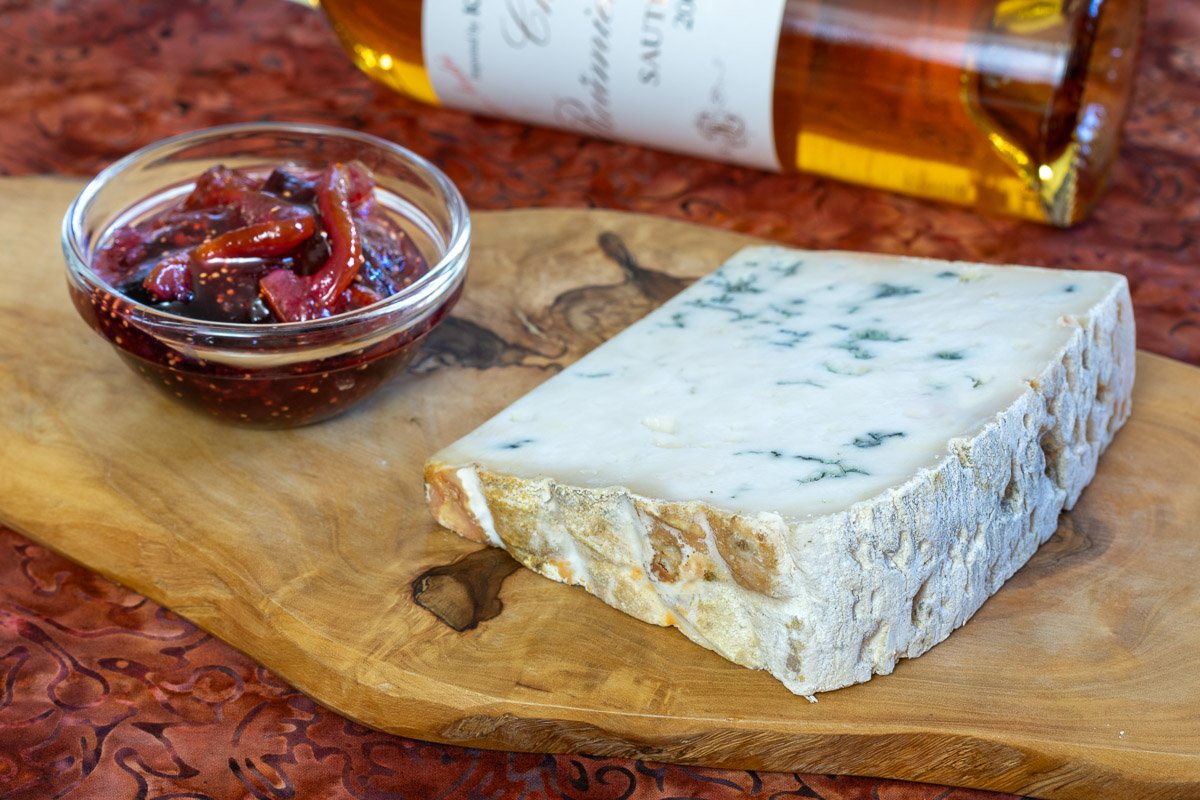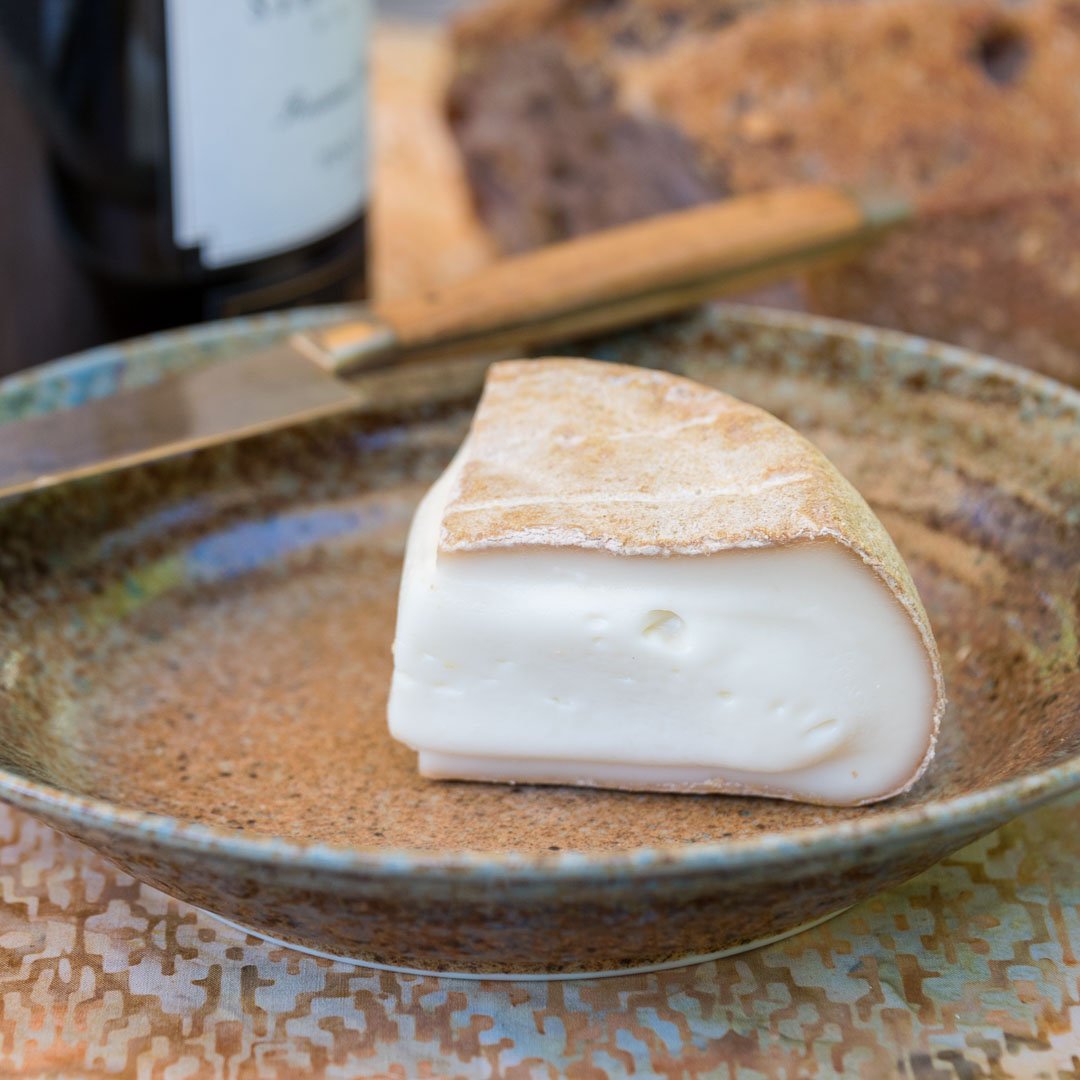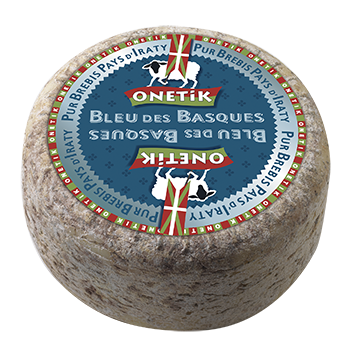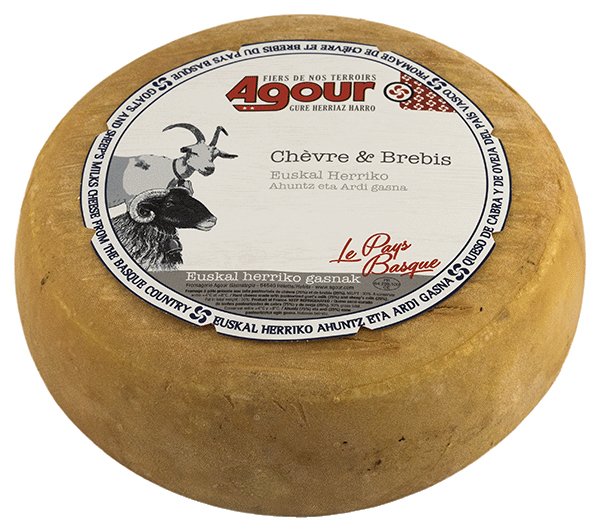If you were limited to eating cheese from only one region (perish the thought), where would you choose? I’m going with the Pyrenees, preferably the French side. The cheeses we get from the Basque Country and neighboring Béarn are so consistently appealing that I don’t think I would even feel that deprived. Two new imports from the region make the choice even easier.
What makes these cheeses so good? Generations of experience, certainly. This is one of the oldest cheesemaking regions on earth, with hardy sheep breeds suited to the landscape and plentiful rainfall for high-quality pasture. There’s a reverence for tradition in the Basque Country that compels people to persist with rituals like transhumance, the annual migration of sheep and shepherds into the mountains to take advantage of the grass. Not to mention centuries of isolation that have helped preserve a distinctive culture and way of life.
Below are eight exceptional Pyrenees cheeses that could keep me satisfied for a long time:
Washed-rind Basque beauty: Arpea
Created about a decade ago by the Fromagerie Agour, the sheep’s milk Arpea resembles no other Basque cheese I know. A small, semisoft disk from an area known almost exclusively for hard aged wheels, it represents new thinking in this tradition-bound region. This little guy has a thin, crunchy, brine-washed rind and a smooth, supple interior with aromas of garlic and celery.
Raw-milk Bethmale
Named for the remote Bethmale (bett-mahl) Valley, an area known mostly to hikers and skiers, Bethmale cheese is little known even in France. The century-old Fromagerie Jean Faup makes a version with pasteurized goat’s milk and another with raw cow’s milk. Both are 10-pound wheels, similar in style and appearance, with washed rinds and a smooth, semifirm interior. The goat’s milk wheel is nutty, mellow and sweet, not remotely chalky or goaty. The cow’s milk version is more pungent, with aromas of mushroom and earth.
Sheep milk star: Bleu des Basques
Created in 2001, Bleu des Basques immediately earned acclaim in France and found fans. Made by Onetik, one of the region’s larger firms, this sheep’s milk wheel hits a hard-to-nail mark: mellow enough for the blue-reluctant yet with enough personality for flavor hounds like me. It has a natural rind, a creamy interior and a full, nutty, buttery taste and faintly sweet finish. Toast some walnuts and open a dessert wine with this one.
New mixed-milk wheel: Opari
New from Fromagerie Agour—and that’s a phrase that always gets my attention—Opari is a goat-sheep blend similar in shape and style to Ossau-Iraty, the Basque region’s best-known cheese. Like Ossau-Iraty, Opari is silky and nutty, but with a bit more dulce de leche flavor from the goat’s milk.
Pyrenees treat: Ossau-Iraty
I could never settle on a favorite cheese, but Ossau-Iraty would certainly be a contender. This ancient sheep cheese has a PDO (protected designation of origin) so it can only be made in a limited zone from the local breeds and only between December and August. (The ewes get some down time for their health.) Although some Ossau-Iraty is still made from raw milk on the farm—and, in summer, made in the mountains from flocks grazing at high elevation—that’s not typically what we see in the U.S. We get Ossau-Iraty made at creameries from pooled and pasteurized milk—so delicious that it makes you wonder how much better a raw-milk summer wheel could possibly be.
Aged at least four months (and more is better), Ossau-Iraty is silky-smooth, like Comté, but with that deep savoriness that comes only from sheep’s milk. The aroma suggests toasted nuts and pale caramel and the flavor is a riveting blend of sweetness, spice and salt. When I visited the region years ago, every restaurant served Ossau-Iraty for the cheese course and invariably with black cherry jam.
Christian Pardou’s family has made cheese in the Pyrenees for six generations, but he chose the affinage (cheese ager) path. The Pardou aging cellars are in a former railroad tunnel burrowed into a mountainside in the Ossau valley. With high humidity and a steady, cool temperature, the tunnel provides ideal conditions for maturing the regional cheeses. Pardou Pur Chèvre, a raw milk tomme, is made by goat farmers in the Pyrenees, who send their day-old wheels to Pardou for salting and aging. The six-pound wheels are firm yet creamy, with a nutty scent and lingering caramel sweetness.
No longer secret: Secret de Compostelle
Secret de Compostelle, another gem from Agour, is a near-twin to Ossau-Iraty, made by an identical process but different in one key respect. The pasteurized sheep’s milk for Secret (say suh-cray) is sourced from outside the permitted zone—sometimes, in fact, from the Spanish side of the Pyrenees—so the finished cheese isn’t entitled to the Ossau-Iraty name. That said, I’d be hard pressed to tell the two apart. Secret de Compostelle has a natural rind with plenty of colorful microbial life. At seven or eight months of age, it is firm and the color of pale butter, the aroma distinctly nutty with a hint of sour cream. The texture is silky, especially if you shave the cheese with a plane, and the flavor melds sweetness and savory depth into a taste experience that I find irresistible.
Urdina Goat Blue (top image, with homemade fig and lemon jam) demonstrates, yet again, the remarkable skill at Agour. This recent import may well be the most irresistible newcomer I’ve encountered all year. I have no idea why blue cheeses from goat’s milk are so uncommon; they can be sublime. (Carr Valley’s Billy Blue helps make my case.) Urdina is luscious—moist and creamy, full-flavored but not pungent, nutty and mellow but with a lactic finish. And just look at that gorgeous rind. Agour makes a sheep’s milk Urdina, too, but both types, being new, have limited distribution.
For now, look for Urdina Goat Blue at these retail locations:
109 Cheese & Wine (Ridgefield and Kent, CT)
Arrowine & Cheese (Arlington, VA)
Chantal’s Cheese (Pittsburg, PA)
City Acres (Brooklyn and Manhattan)
Gourmet Shop (Columbia, SC)
Market Hall Foods (Oakland, CA)
Park Slope Coop (Brooklyn)
Rainbow Grocery (San Francisco)
Sunshine Foods (St. Helena, CA)
Tavola Italian Market (Brooklyn)
Turning Point Cheese (Stamford, CT)
Wine Source (Baltimore, MD)
Woodlands Market (Kentfield, CA)








